Politics
Supreme Court seeks govt assurance on lowering ‘political temperature’
Published
3 years agoon
By

ISLAMABAD: The Supreme Court on Wednesday asked for the government’s assurance it would take steps to lower the feverish political temperature in the country, before adjourning the hearing of the PTI petition in the election delay case till tomorrow (Thursday).
During today’s hearing, the five-member larger bench headed by Chief Justice of Pakistan (CJP) Umar Ata Bandial, hotly debated whether the court’s March 1 order was given with a 4-3 majority or 3-2.
The confusion emerged after the SC resumed the hearing of the election delay case today, a day after a hard-hitting resolution was passed by the National Assembly holding “undue interference by the judiciary in political matters as a cause of political instability in the country”.
Pakistan Tehreek-e-Insaf (PTI) has filed a petition against the ECP’s March 22 order postponing the elections in Punjab and Khyber Pakhtunkhwa citing multiple reasons.
The bench comprised Justice Ijaz Ul Ahsan, Justice Munib Akhtar, Justice Amin-Ud-Din Khan and Justice Jamal Khan Mandokhail as members.
Today’s hearing
At the outset of the hearing, Justice Mandokhail clarified his remarks from the previous hearing, saying that it had caused “great confusion”.
“I stand by my detailed order,” the justice said, explaining that one part of the judgment was about the administrative powers.
He said that the CJP would be asked to form a judges’ committee to look into the rules of administrative powers.
Yesterday, he had remarked that the number of judges who favoured the March 1 ruling was an internal matter of the apex court.
“In the second part of the verdict, four of us judges rejected the suo motu notice and pleas,” he said, adding that the judgement by the four judges was the order of the court.
He, however, stated that this order was not issued by CJP Bandial.
“How did the president give a date when there wasn’t a verdict, how did the election commission issue the schedule,” he asked.
“An order of the court is signed by all the judges,” Justice Mandokhail declared.
After this, the lawyers of the ruling alliance proceeded to the rostrum.
Senior lawyer Farooq H Naek requested the court to form a full court for the clarification of the March 1 judgement.
“It is necessary to [fulfil] the requirements of justice that it is decided that whether it was a 3-2 or 4-3 split verdict,” Naek maintained. He said that the entire country’s fate depended on the matter as the nation is stuck in a dilemma.
At this, CJP Bandial directed the lawyer to submit his request in writing and warned against spoiling the court’s environment.
“[We] will decide this matter when there is a petition,” the chief justice said while announcing that the court will hear ECP’s arguments first.
ECP’s counsel Sajeel Swati asked how the commission could issue an election schedule when it did not receive the order of the court.
“A Supreme Court order is the order of the court, which wasn’t even issued,” he said. He also asked if the ECP had seen the brief order.
At this, the lawyer maintained that they might have made a mistake in understanding the judgement.
Meanwhile, Justice Akhtar inquired if the brief verdict stated it was a 4-3 split verdict. He said that the March 1 judgement does not state anywhere that it is a 4-3 split verdict.
“Having a difference of opinion is the right of the judge but the minority of judges cannot claim to be inclusive of the majority under any law,” Justice Akhtar observed.
He further stated that five judges heard the case in an open court and signed the order after issuing the verdict.
At this point, Justice Mandokhail interjected that the brief verdict stated that the judges gave their dissenting notes.
“The dissenting note clearly stated that [we] agree to the decision of Justice Yahya Afridi and Justice Athar Minallah. Did their decision disappear into thin air,” he asked.
At this, CJP Bandial interjected that matters related to the chambers should be left where they belong and said that Attorney General of Pakistan Mansoor Usman Awan would give his arguments on the matter.
However, Justice Mandokhail asked what the ECP’s stance on the detailed verdict was.
The lawyer informed the court that he had not taken the electoral body’s directive over the 4-3 split verdict.
Twin troubles
The lawyer further maintained that the electoral body started implementation on the court’s order as per its understanding and suggested the date as per Section 57 of the Election Act after it was received on March 3.
When asked about the time of ECP’s order to postpone polls, the lawyer said that it was issued on the evening of March 22, by the time all the work related to scheduling and nomination papers had been wrapped up.
The ECP’s legal representative highlighted the security concerns in the country and informed the court about the army’s refusal to provide security during the polls and the agencies’ reports on terrorist threats in KP.
As CJP Bandial inquired if the election commission had informed the president about these issues, Swati said that they had.
“Reports about terrorism in KP are serious,” the CJP remarked.
At this, Justice Akhtar remarked that the ECP was relying on the letters of February 8 while the apex court announced the decision on March 8
“In February, you knew that you had to conduct elections in October. Then why was the date of April 30 suggested to the president?” he asked.
At this, the ECP’s lawyer maintained that he had referred to the intelligence agencies’ reports as a background but the decision to defer the polls was taken on March 22.
He further informed the court that the Finance Ministry told the ECP that they can’t issue funds for polls in the current fiscal year. Moreover, ECP was told that the Punjab Police lacked 297,000 security personnel needed for the polls.
‘Under any circumstances’
Moving on, Justice Bandial remarked that the elections had to be conducted in 2023 under any circumstances, and asked why funds hadn’t been reserved for it in the annual budget.
At this, the AGP maintained that the budget for the polls had to be reserved for the next fiscal year. He added that they did not take into account the early dissolution of assemblies.
Upon the CJP’s inquiry, the AGP said that Rs47 billion will be spent if the elections are held altogether in the entire country and Rs20 billion will be spent extra if the provincial elections are held early.
The ECP’s lawyer also reiterated the security threats faced by public and political leaders due to rising terror attacks.
“The information you are giving is of serious nature. Didn’t you bring all of this in the president’s notice,” CJP Bandial asked. It was ECP’s fault if the president hadn’t been informed of this because the president gave the election date with the commission’s advice, he added.
Moreover, the ECP’s lawyer informed the apex court that the operations in Punjab’s kaccha (riverine) area would take six months to complete.
CJP Bandial acceded that the issue of terrorism was genuine. However, he pointed out that the issue was not new.
“Polls had been conducted thrice in the 90s when sectarianism and terrorism were at their peak,” he said.
He observed that the ECP suggested the dates without stating these facts to the president.
Besides, Justice Akhtar inquired if the ECP would organise the polls if the institutions provide assistance to it.
“Apparently, the ECP’s entire case was based on the letters [threat alerts], while non-availability of the funds is also an issue,” he observed.
After this, the court adjourned the hearing for a while.
Post-break hearing
Once the hearing resumed after the break, the ECP lawyer informed the bench that the new date — October 8 — was not temporary. He further added that the security agencies feared that if elections are held in some areas, terrorists would target those specific areas.
“The security agencies have said that arrangements will be completed by the date (October 8),” said the ECP lawyer.
On this point, Justice Akhtar remarked that it’s the ECP’s responsibility to carry out elections. He added that if the ECP had any issues it should have come to the court.
“The election commission should clarify why it differed the polls by six months,” said justice Akhtar.
While Justice Mandokhail observed that the ECP’s authority to conduct elections starts when an election date is set.
On this, the ECP lawyer responded that if the date is fixed, the ECP has the authority to extend it.
However, Justice Ahsan remarked that the ECP can change the election programme but not the date of the polls.
“Is Section 58 of the Election Act above the constitution?” asked the judge.
On the other hand, CJP Bandial agreed with Justice Akhtar that the ECP should have contacted the apex court, and asked the lawyer to convince the bench by today.
“Is October 8 a magical date that guarantees that everything will be alright?” asked the CJP, wondering why the election date could not be September 8 or August 8.
On being probed by the bench on the election date was set for April when the commission was already aware that it would not be possible, the ECP’s counsel said that they had been unaware of the sensitivity of the matter.
Justice Amin-Ud-Din Khan then chided the commission’s counsel, saying that the president had not been apprised of the matter, even though it was the ECP’s duty to do so
The chief justice further pointed out that the new election schedule had not been announced.
In response, the ECP’s counsel argued that the law not only guaranteed free and fair elections but also guaranteed protection of life.
“The court can annul the ECP’s order only if it is unconstitutional and based on malice,” he argued.
On being asked if the petitioner had raised the point of malice, ECP’s counsel Sajeel said it was not.
Justice Munib reiterated the responsibility of the ECP in holding fair and timely elections. He further inquired if the ECP would withdraw from its responsibility of holding elections if all the assemblies were dissolved.
The ECP counsel said that were the funds and security to be arranged for, the elections could be held on April 30.
“In 1988, elections were delayed by the order of the court. In 2008, the situation was such that no one objected to postponing the elections, we pray that the incident of 2008 is not repeated, he said.
The ECP counsel then stressed that Article 218-3 of the Constitution underscored the importance of transparent and fair elections.
On the CJP’s remarks that minor disputes are only to be expected, the ECP’s advocate said that the election organising authority feared violence may break out.
The CJP then turned his attention to another topic.
“Overseas Pakistanis demand the right to vote, while the Supreme Court’s order is also available, yet the commission has done nothing about it,” he commented.
The CJP then inquired of the government whether the six-month period could be reduced?
At this, the argument of the ECP lawyer was concluded.
Registrar office accepts ruling alliance’s pleas
Earlier, the SC Registrar’s Office accepted the separate pleas of Pakistan Muslim League-Nawaz (PML-N), Pakistan Peoples Party and Jamiat Ulema-e-Islam-Fazl (JUI-F) to become parties in the case.
The coalition government had decided to become a party in the case a day earlier.
The members of the ruling alliance had filed the pleas in the SC to become a party and will present their stance when the hearing resumes.
You may like
-
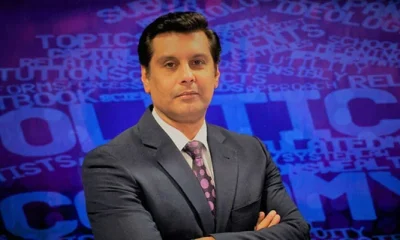

Arshad Sharif’s wife files lawsuit against Kenyan police over journalist’s killing
-
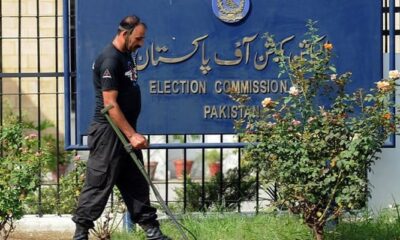

PTI urges ECP to issue order on election symbol
-
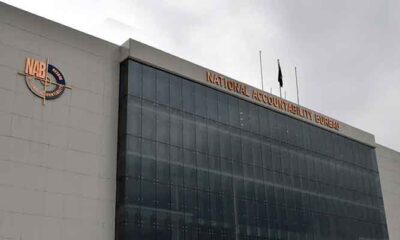

Task force on the cards as NAB aims to boost accountability process
-
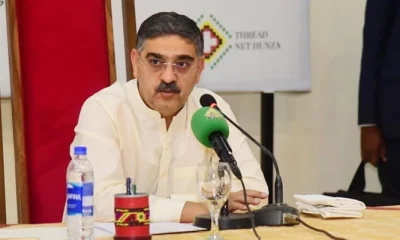

PM Kakar to attend UN climate moot in UAE next month
-
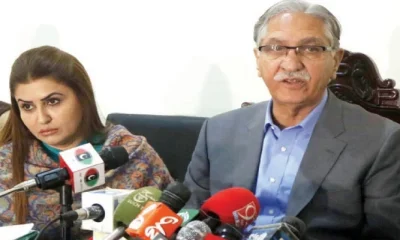

PPP raises concerns over ‘special relief’ to Nawaz on return
-
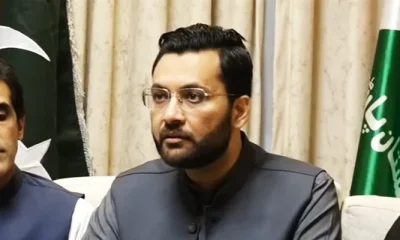

Farrukh Habib parts ways with Imran Khan-led PTI

In a unanimous verdict, a five-member bench of the Supreme Court on Monday declared civilians’ trials in military courts null and void as it admitted the petitions challenging the trial of civilians involved in the May 9 riots triggered by the arrest of Pakistan Tehreek-e-Insaf (PTI) chief Imran Khan in a corruption case.
The five-member apex court bench — headed by Justice Ijaz Ul Ahsan, and comprising Justice Munib Akhtar, Justice Yahya Afridi, Justice Sayyed Mazahar Ali Akbar Naqvi and Justice Ayesha Malik — heard the petitions filed by the PTI chief and others on Monday.
The larger bench in its short verdict ordered that 102 accused arrested under the Army Act be tried in the criminal court and ruled that the trial of any civilian if held in military court has been declared null and void.
The apex court had reserved the verdict earlier today after Attorney General of Pakistan (AGP) Mansoor Usman Awan completed his arguments centred around the domain and scope of the military courts to try the civilians under the Army Act.
At the outset of the hearing today, petitioner lawyer Salman Akram Raja told the bench that trials of civilians already commenced before the top court’s verdict in the matter.
Responding to this, Justice Ahsan said the method of conducting proceedings of the case would be settled after Attorney General of Pakistan (AGP) Mansoor Usman Awan completed his arguments.
Presenting his arguments, the AGP said he would explain to the court why a constitutional amendment was necessary to form military courts in 2015 to try the terrorists.
Responding to Justice Ahsan’s query, AGP Awan said the accused who were tried in military courts were local as well as foreign nationals.
He said the accused would be tried under Section 2 (1) (D) of the Official Secrets Act and a trial under the Army Act would fulfill all the requirements of a criminal case.
“The trial of the May 9 accused will be held in line with the procedure of a criminal court,” the AGP said.
The AGP said the 21st Amendment was passed because the terrorists did not fall in the ambit of the Army Act.
“Amendment was necessary for the trial of terrorists [then] why amendment not required for the civilians? At the time of the 21st constitutional amendment, did the accused attack the army or installations?” inquired Justice Ahsan.
AGP Awan replied that the 21st Amendment included a provision to try accused involved in attacking restricted areas.
“How do civilians come under the ambit of the Army Act?” Justice Ahsan asked the AGP.
Justice Malik asked AGP Awan to explain what does Article 8 of the Constitution say. “According to Article 8, legislation against fundamental rights cannot be sustained,” the AGP responded.
Justice Malik observed that the Army Act was enacted to establish discipline in the forces. “How can the law of discipline in the armed forces be applied to civilians?” she inquired.
The AGP responded by saying that discipline of the forces is an internal matter while obstructing armed forces from discharging duties is a separate issue.
He said any person facing the charges under the Army Act can be tried in military courts.
“The laws you [AGP] are referring to are related to army discipline,” Justice Ahsan said.
Justice Malik inquired whether the provision of fundamental rights be left to the will of Parliament.
“The Constitution ensures the provision of fundamental rights at all costs,” she added.
If the court opened this door then even a traffic signal violator will be deprived of his fundamental rights, Justice Malik said.
The AGP told the bench that court-martial is not an established court under Article 175 of the Constitution.
At which, Justice Ahsan said court martials are not under Article 175 but are courts established under the Constitution and Law.
After hearing the arguments, the bench reserved the verdict on the petitions.
A day earlier, the federal government informed the apex court that the military trials of civilians had already commenced.
After concluding the hearing, Justice Ahsan hinted at issuing a short order on the petitions.
The government told the court about the development related to trials in the military court in a miscellaneous application following orders of the top court on August 3, highlighting that at least 102 people were taken into custody due to their involvement in the attacks on military installations and establishments.
Suspects express confidence in mly courts
The same day, expressing their “faith and confidence” in military authorities, nine of the May 9 suspects — who are currently in army’s custody — moved the Supreme Court, seeking an order for their trial in the military court be proceeded and concluded expeditiously to “meet the ends of justice”.
Nine out of more than 100 suspects, who were in the army’s custody, filed their petitions in the apex court via an advocate-on-record.
The May 9 riots were triggered almost across the country after former prime minister Imran Khan’s — who was removed from office via a vote of no confidence in April last year — arrest in the £190 million settlement case. Hundreds of PTI workers and senior leaders were put behind bars for their involvement in violence and attacks on military installations.
Last hearing
In response to the move by the then-government and military to try the May 9 protestors in military courts, PTI Chairman Imran Khan, former chief justice Jawwad S Khawaja, lawyer Aitzaz Ahsan, and five civil society members, including Pakistan Institute of Labour Education and Research (Piler) Executive Director Karamat Ali, requested the apex court to declare the military trials “unconstitutional”.
The initial hearings were marred by objections on the bench formation and recusals by the judges. Eventually, the six-member bench heard the petitions.
However, in the last hearing on August 3, the then-chief justice Umar Ata Bandial said the apex court would stop the country’s army from resorting to any unconstitutional moves while hearing the pleas challenging the trial of civilians in military courts.
A six-member bench, led by the CJP and comprising Justice Ijaz Ul Ahsan, Justice Munib Akhtar, Justice Yahya Afridi, Justice Sayyed Mazahar Ali Akbar Naqvi, and Justice Ayesha Malik, heard the case.
In the last hearing, the case was adjourned indefinitely after the Attorney General for Pakistan (AGP) Mansoor Usman Awan assured the then CJP that the military trials would not proceed without informing the apex court.
Politics
Arshad Sharif’s wife files lawsuit against Kenyan police over journalist’s killing
Published
2 years agoon
By
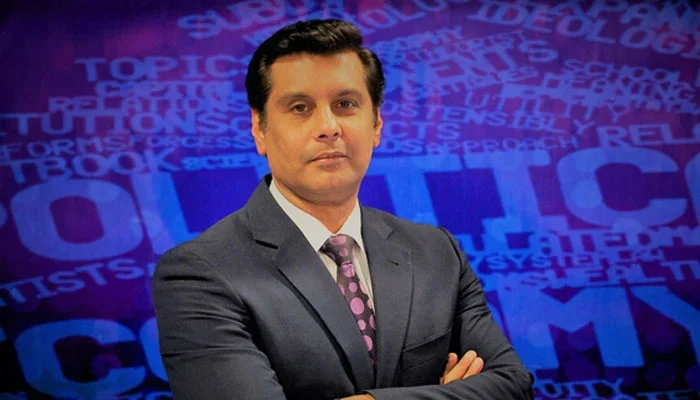
- Javeria Siddique filed lawsuit to “get justice for her husband”.
- Lawsuit also seeks “public apology” from Kenyan attorney general.
- Journalist was shot dead in October 2022 by Kenyan police officers.
NAIROBI: Slain journalist Arshad Sharif’s wife has registered a case against the Kenyan Elite police unit for her husband’s murder in Kenya, reported The News.
Javeria Siddique in her petition has made the attorney general of Kenya, national police service of the country and the director public prosecution respondents.
She has urged that the officers involved in Sharif’s murder be put on trial and be punished for their crime.
She urged the court to issue directives to the Kenyan attorney general (AG) to apologise to Sharif’s family within seven days of court’s orders, admit facts, accept responsibility and issue a written apology at public level.
Sharif’s widow, while confirming the filing of the case, said: “I have got a case registered in Nairobi for seeking justice in murder case of my husband. We got the case registered against general service unit of Kenya because they committed crime publicly and then admitted it was matter of mistaken identity. But to me it was targeted murder. But Kenyan government never apologised. They never contacted us.”
The registration of the case comes after it was reported the five Kenyan police officers who were involved in the killing quietly resumed their duties without any action taken against them.
Nine months after the killing of the journalist at a roadblock in a remote part of the East African country, the five police officers involved in the brutal killing are enjoying full police perks and their suspensions have turned out to be only a whitewash by the Kenyan authorities.
A trusted security source revealed that the five cops involved in the fatal shootout are back to work and two of them have been promoted to senior ranks.
Kenya’s Independent Policing and Oversight Authority (IPOA), the body that is tasked with investigating the conduct of police officers, despite making a promise to give an update on Sharif’s murder within weeks has not made its findings public in over nine months.
Sharif had arrived in the Kenyan capital on August 20 and died on October 23 last year in a shootout in which his driver Khurram Ahmad survived miraculously.
The 49-year-old had fled Pakistan in August to avoid arrest after he was slapped with several cases including sedition charges over an interview with Shahbaz Gill, a former aide of Imran Khan.
After reaching Kenya’s capital Nairobi, Sharif stayed at the Riverside penthouse of businessman Waqar Ahmad who is also Khurram’s brother who was driving him when he was killed.
The journalist was being driven from Ammodump Kwenia training camp, a joint which is owned by Waqar and they were heading to Nairobi County where he was staying.
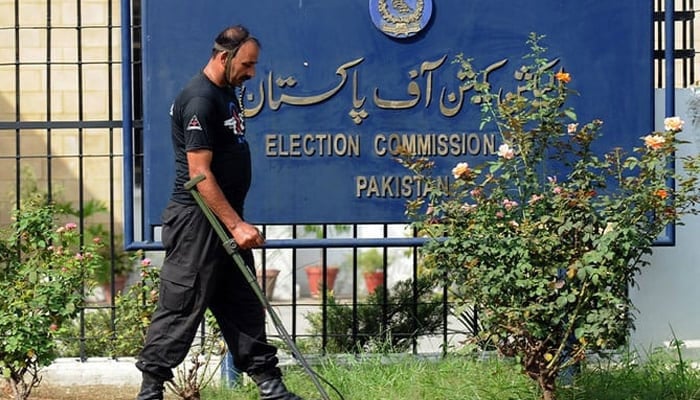
- ECP notice on inter-party elections “serious mistake,” says PTI.
- ECP has no justification for depriving PTI of symbol: Senator Zafar.
- 41 days passed but detailed decision not issued yet: PTI’s counsel.
ISLAMABAD: The Pakistan Tehreek-e-Insaf (PTI) has urged the Election Commission of Pakistan (ECP) to issue its verbal order regarding issuance of election symbol and reminded the electoral body of its constitutional duty to hold free and fair elections in the country, The News reported on Thursday.
Senator Barrister Syed Ali Zafar, the party’s counsel, on Wednesday filed an application with the Election Commission requesting for issuance of a detailed written order in the interest of justice and fairness.
The party has urged the Election Commission to issue a detailed decision without delay in light of its announcement concerning issuance of election symbols.
According to Senator Zafar, the Election Commission had issued a notice to the PTI for refusing to issue the symbol of “bat” on the basis of intra-party elections.
He insisted the commission’s notice on the basis of inter-party elections was a serious mistake, as the PTI had held intra-party elections on June 9, 2022 as per its constitution.
He maintained that the ECP had no justification of depriving the PTI of its symbol after holding the intra-party elections, as the electoral body had never objected to the intra-party elections but identified some defects in the submitted document, which had been removed.
The Election Commission in its August 30, 2023 decision, he pointed out, accepted the PTI’s decision to hold the intra-party elections and announced the decision to issue the election symbol of “bat” and after the August 30 decision of the Election Commission, the matter had become final and complete.
He recalled that at the time of the verbal announcement of the August 30 decision, the Election Commission announced to issue a detailed decision in this regard and this was widely highlighted in print, electronic and social media.
However, he noted, 41 days had passed since the August 30 decision, but a detailed decision had not yet been provided.
“PTI is the largest political party in the country, which is contesting the upcoming elections. Not issuing a detailed decision even after 41 days is a clear violation of fundamental rights, including articles 4, 9, 10A, 15, 16, 17 and 26 of the Constitution,” he said.
Ali Zafar insisted that according to the Constitution, the Election Commission was bound to hold free, fair, impartial and transparent elections, while avoiding detailed decisions was a deviation from this constitutional mandate.


Supreme Court annuls trials of civilians in military courts

Sea conditions ‘very high’ as Cyclone Tej moves towards northwestward

IMF condition: ECC set to green light gas tariff hike today

Barwaan Khiladi: Kinza Hashmi discusses her role as Alia

Snap launches tools for parents to monitor teens’ contacts

WATCH: Pakistani traveller deported from Dubai for damaging plane mid-air

Learn First | How to Create Amazon Seller Account in Pakistan – Step by Step

Sajjad Jani Funny Mushaira | Funny Poetry On Cars🚗 | Funny Videos | Sajjad Jani Official Team

